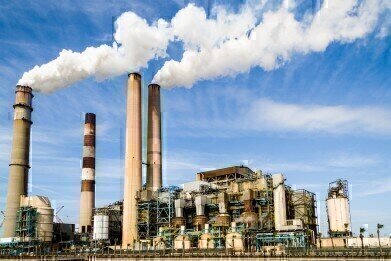Air Clean Up
Is the UK Watering Down Pollution Regulations?
Nov 07 2018
UK delegates have been pushing to water down regulations aimed at limiting the emissions of harmful toxins from waste incinerators at a recent EU meeting, according to sources at the event. The debate took place in Sevilla in April of this year and discussed the possibility of reducing the amount of allowable nitrogen oxides (NOx) emissions by 25% by 2024.
However, the UK apparently led a charge to push back those tighter controls, citing reasons both economic and environmental. Critics say they are putting the economy ahead of the environment and it has also been suggested that the British delegate opposed stricter regulation on mercury emissions at the same meeting, as well.
Bringing NOx under control
The EU has been convening at several meetings in the last 12 months to discuss the possibility of reducing NOx emissions from current allowed levels (of 200mg/Nm3) to 25% of that by 2024 (150mg/Nm3).
The amount of NOx emitted by burners and boilers has been a concern for the scientific community for some time, and several methods of reducing those emissions have been investigated and developed over recent years. Two of the foremost are selective catalytic reduction (SCR) and selective non-catalytic reduction (SNCR), which are both well capable of bringing NOx emissions under the proposed limits.
However, the UK has been speaking out against these proposals and at the Sevilla meeting in April, apparently won an argument to retain a loophole in the new legislation which would allow some plants not capable of installing SCR technology to emit as much NOx as 180mg/Nm3. Tellingly, none of the plants in the UK currently have SCR technology installed on site.
The UK delegates also spoke out against the idea of reducing mercury emissions, despite the sizable market for chemicals that can capture mercury and the scant opposition to the new regulations from the industrial sector.
For and against
In defence of their stance, the UK have argued that the mandatory installation of SCR technology could cost exorbitant sums and actually increase greenhouse gas (GHG) emissions due to the intensive labour involved. This viewpoint is supported by some experts, although critics of Britain’s position say that the loophole will now be exploited by such plants, and that SNCR would be more than capable of achieving the same effect.
“I think in cases where an operator uses SNCR at an existing plant, they will always find arguments that SCR is not applicable. This is why I think that no plant will change the abatement system from SNCR to SCR due to conclusions in the new WI BREF,” explained Peter Gebhardt, an environmental expert who was present at the April delegation. “With the SNCR technique, even values below 100mg/m3 are achievable.”
Elsewhere, opposition politicians have been scathing in their condemnation of Britain’s approach to the serious problem of air pollution. “We seem to be going in completely the wrong direction,” said David Drews, shadow environment minister.
“Instead of working to secure cleaner air for public health and better recycling for the sake of the environment, the government is increasing our reliance on incinerators and therefore the noxious particulate matter that is released into the atmosphere.”
Events
Apr 22 2024 Hannover, Germany
Apr 23 2024 Kuala Lumpur, Malaysia
Apr 24 2024 Sao Paulo, Brasil
May 05 2024 Seville, Spain
May 13 2024 Munich, Germany














